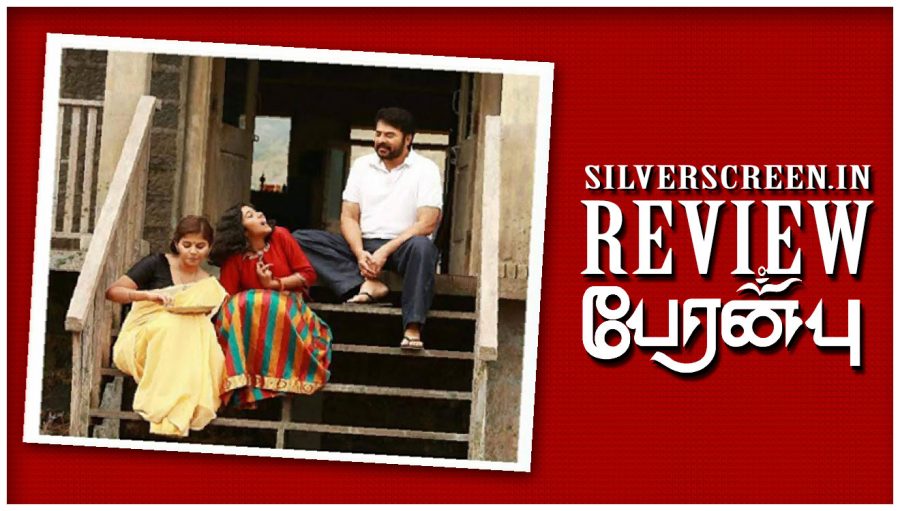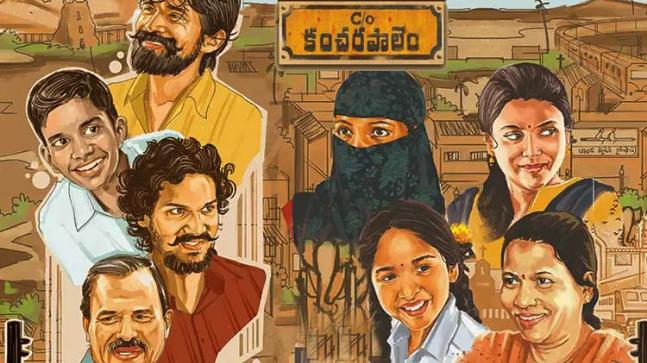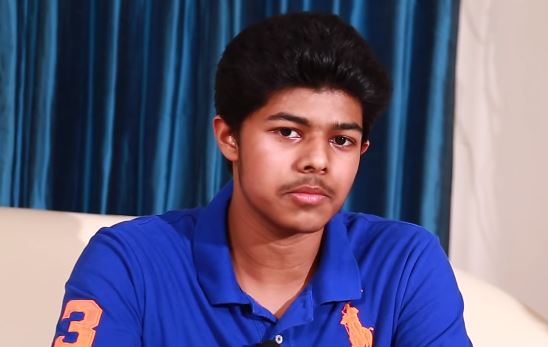*Contains spoilers*
Director: Ram
Cast: Mammootty, Sadhana, Anjali Ameer, Anjali
Composer: Yuvan Shankar Raja
Peranbu makes it worthwhile. It asks you to sit down, consider it, watch it in full measure and at its own pace. It is not a demand, it is a request and when you do accede, it makes it all worthwhile.
A tale of love and redemption, Peranbu tells the story of a father and daughter, growing to like each other. Love each other. Accept each other. But there are no cutesy moments. There are no great big speeches or declarations of love, no major flourishes with accompanying music that tells us how to feel what we ought to feel. It is a romance also, of a man and woman falling in love, marrying each other after many failed attempts at finding love.
*****
Peranbu is written by Ram, and co-directed by Ram, Anjana Krishnakumar, and Amudhavan Karupaiah. It stars Anjali Ameer, Sadhana, Mammootty, Anjali, and others, and features music by Yuvan Shankar Raja. The film was shot by Theni Easwar, and edited by Sreekar Prasad. Peranbu is produced by Pl Thenappan.
The film did the rounds of film festivals for over a year, winning all kinds of praise and acclaim. It finally released in theatres today.
*****
Amuthavan (Mammootty) is a taxi driver and the primary caregiver for his disabled daughter – Pappa (Sadhana). He needs to come to terms with the fact that his daughter is growing up and is no longer the little girl he thinks she is. He also has to come to terms that his wife – who deserted the two of them and found love elsewhere – isn’t an evil being but just someone who wanted to be loved. And he has to figure out where he himself will find love and company.
We first see Amuthavan and Pappa approaching a remote house on the banks of a lake in Kodaikanal. Cut off from human contact, the house doesn’t even have electricity. Amuthavan believes this house will “cure” his daughter, make her like him. They also move here because the city and his own mother will not have him: reason is Pappa. And we also learn that his wife has left him for another man. And so, this house in Kodaikanal.
But the local land mafia wants this house, to turn it into a resort. They make an offer, they beat him up, but he stands his ground. Here in the house, Amuthavan slowly builds a relationship with Pappa. Very slowly. Partly aided by nature, a horse named Nailpolish, and a little bird trapped in the house which Amuthavan helps free.
He first realises his girl is no longer his baby, one night, when he spots blood on the mattress. She’s menstruating. He looks for a woman who can help, and does find one, but she leaves almost immediately. And so Amuthavan becomes mother and father to the girl. Just as he gets used to the idea, a woman called Vijayalakshmi (Anjali) enters his life. She tells him that she has no one and nowhere to go to, and will work for food and a place to stay. Pappa too takes an instant liking to Vijayalakshmi – because her nail-polish.
It also appears Vijayalakshmi likes Amuthavan, and sure enough, the two of them become lovers, and then marry each other. But there is an ulterior reason: we soon find that Vijayalakshmi and her husband Babu are agents of the land mafia and have engineered circumstances in such a way that Amuthavan has to hand over the house to the mafia or be charged with sexual assault of Vijayalakshmi.
And so the two of them move back to Chennai, and into a small lodge. Here, Pappa is locked indoors while Amuthavan tries to find a job, a house, a life. And behind doors, Pappa grows up further. Circumstances force Amuthavan to put Pappa in a shelter for disabled children, and he meets trans woman sex worker Meera (Anjali Ameer). Things get bleaker for him: he finds Pappa having thoughts of sex and love, and that he doesn’t know how to help her. He’s also driven to exhaustion, causing a road accident.
And so, he decides to take the easy way out and take both his own and Pappa’s life. They walk into the sea. But just in time, Meera spots them, rescues them.
*****
Mammootty as a single father. All my heart. There’s never a moment where he is the superstar. Throughout the film, he is beaten up, manipulated, slapped, hit. He takes it all, never protesting. Never even trying to stop things happening to him. Able to forgive everyone and every event. He goes to the home of his ex wife, the one who left him for another man. Here he discovers that she’s converted, is now Stella, and has just given birth to a baby. The other man tells him that the newly born is “normal”. An almost accusation of Amuthavan, laying all the blame for Pappa’s disability on him. He just gets up and returns home, unable to blame her, or even question her.
Sadhana as Pappa. While I believe that a disabled actor ought to have been cast for the role, Sadhana perhaps is the next best fit. She doesn’t overplay her disability, doesn’t become a parody or a caricature. Unlike Anushka Sharma in Zero.
And Anjali Ameer. More of my heart than there is. A trans woman sex worker played by a trans woman. Perhaps other writers and directors would have written in a bunch of cliches and heavy handed scenes into this role. And perhaps other actors would have overplayed it. But here, there is no such thing. Meera is who she is and is the emotional strength of this film. It’s because of her that Amuthavan and Pappa find redemption, and it is as it should be.
*****
There’s a particular scene that stood out for me. In Kodaikanal, in that remote house, Amuthavan and Pappa have just had a disagreement. All the while, the camera is at a distance, a dolly shot. The camera moves sideways – left and right – as the argument proceeds. Then Pappa gets up and goes into her room, shuts the door. Amuthavan is still sitting on the floor. I kept shouting in my head for the camera to punch in closer, so we can see what Amuthavan is feeling. But no, the camera – and all of us – stay resolutely at a distance. Allowing Amuthavan the room and privacy for him to grieve alone. Space to be.
Things get a bit tighter after they move into the city, and into the cramped lodge, and later house. And so things stay, till the moment of crisis: when Amuthavan has decided to end his own and Pappa’s life. And then it really opens up after the three of them finally find love and company in each other.
Recommended
Disability rights activists and disabled persons themselves have been advocating for agency and capacity for themselves. In all matters, including sexuality. Many activists have cautioned against desexualising disabled persons. Against denying them their sexuality, treating them as infants. Peranbu is perhaps that advocacy translated as a mainstream film. Just as it is the film that trans activists have asked for. A transgender woman – a sex worker – written with agency, empathy, and depth.
Peranbu is worthwhile for all this, and for more.
*****
The Peranbu review is a Silverscreen original article. It was not paid for or commissioned by anyone associated with the movie. Silverscreen.in and its writers do not have any commercial relationship with movies that are reviewed on the site.



